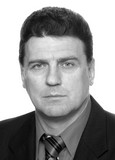A technique for improving the mental well-being of individuals with disabilities through aquatic-based physical therapy
Keywords:
: body-oriented therapy, hydro-rehabilitation, psycho-emotional state, limitations in health, adaptive physical culture.Abstract
Objective of the study was to evaluate the impact of aquatic-based therapy on the mental well-being of individuals with disabilities.
Methods and structure of the study. The study involved 19 participants ranging in age from 5 to 18 years, with diverse health conditions. The research focuses on the design of classes in a water-based environment for individuals with disabilities. A novel approach has been implemented to evaluate alterations in the psychological and emotional activity of individuals with disabilities: assessing their general psychological and emotional state through psychodiagnostic techniques, monitoring their physiological indicators, and examining their capacity for consciously regulating these indicators during BOS procedures.
Results and conclusions. The experiment demonstrated that the techniques and tools employed in water-based physical therapy classes should not only aim to enhance physical development indicators, but also to foster the development of cognitive, motivational, regulatory, communicative, and emotional aspects in children with disabilities. The findings underscore the significance of implementing the proposed approach for assessing the psychological and emotional well-being of children with disabilities, allowing for a comprehensive evaluation of the changes in their emotional and motor activity.
References
Azarova L.N. Telesno-oriyentirovannyy podkhod v rabote s giperaktivnymi detmi. Obucheniye i vospitaniye: metodiki i praktika. 2015. No. 20.
Bedeeva E.V Osnovnyye sredstva profilaktiki i korrektsii psikhoemotsionalnogo napryazheniya u detey s OVZ. Novaya nauka: psikhologo-pedagogicheskiy podkhod. 2017. No. 2. pp. 23-27.
Berezkina-Orlova V.B. Telesnaya psikhoterapiya. Biodinamika. Study guide. Moscow: AST publ., 2010. 409 p.
Deryabina G.I. Primeneniye kreativnykh telesno oriyentirovannykh praktik v komplekse s fizkulturno-korrektsionnoy deyatelnostyu s invalidami, imeyushchimi posledstviya detskogo tserebralnogo paralicha. Gumanitarnyye nauki. Pedagogika i psikhologiya. 2012. No. 12. pp. 443-449.
Sergeevich A.A. Klassifikatsiya metodov telesno oriyentirovannoy terapii. Problemy sovremennogo pedagogicheskogo obrazovaniya. 2022. No. 74. pp. 252-255.
Sobchik L.N. Metod tsvetovykh vyborov – modifikatsiya vosmitsvetovogo testa Lyushera. Practical guide. St. Petersburg: Rech publ., 2012. 128 p.
Malkina-Pykh I.G. Telesnaya terapiya. Handbook of a practical psychologist. Moscow: Eksmo publ. 2015. 960 p.
Panfilova M.A. «Kaktus». Graficheskaya metodika. Available at: http://www.psy-files.ru/2007/06/14/kaktus.html
Rybachenko A.B., Barba M.F., Kravchenko M.I. Telesno-oriyentirovannyye praktiki v rabote s detmi. Metod zameshchayushchego ontogeneza. Voprosy doshkolnoy pedagogiki. 2015. No. 3. pp. 99-101.
Cherdonova V.A., Igumnova A.S. Akvaterapiya kak igrovaya tekhnologiya v korrektsionno-razvivayushchey rabote pedagoga psikhologa s detmi s OVZ. Aktualnyye problemy nauki i obrazovaniya v usloviyakh sovremennykh vyzovov. Proceedings of the 11th International scientific-practical conference. Blagoveshchensk, February 20, 2018. Blagoveshchensk: Dalnevostochnogo GAU, publ. 2023. Vol. 2. No. 11. pp. 77-82.

Additional Files
Published
How to Cite
Issue
Section
License
Copyright (c) 2025 Theory and Practice of Physical Culture

This work is licensed under a Creative Commons Attribution 4.0 International License.
